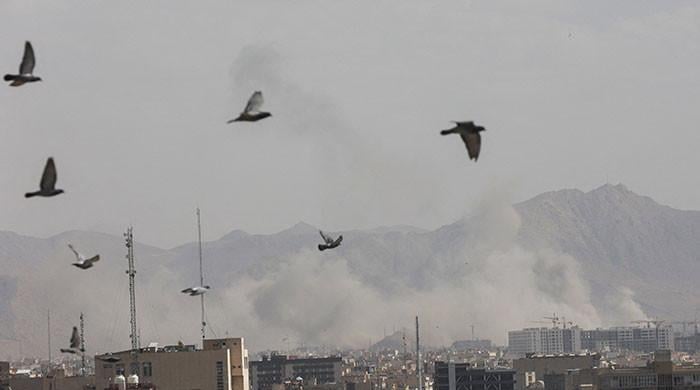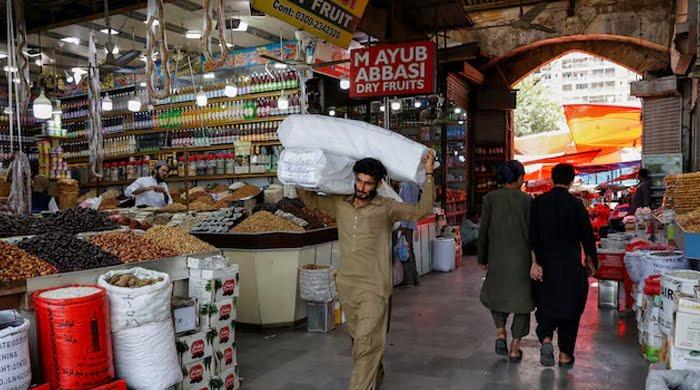Reimagining Justice
A constructive debate on reforming the justice system appears to be completely absent in our counter-terrorism discourse.
May 22, 2018

According to official sources, military courts have convicted 360 people for terrorism-related offences since January 2015, out of which 207 people have been sentenced to death and 153 people have been given prison sentences. At least 56 people have been hanged. Strikingly, only one person has been acquitted.
Military courts were first empowered to try civilians for certain terrorism-related offences in January 2015 through the 21st Amendment to the constitution and Amendments to the Pakistan Army Act, 1952, which were in operation for a period of two years. The expansion of the jurisdiction of military tribunals was a key part of the Government’s 20-point “National Action Plan”, adopted following the horrific attack on the Army Public School in Peshawar in December 2014.
NAP envisioned military courts to be a short-term “solution” to try “terrorists”, to be operational only for a two-year period during which the Government would bring about necessary “reforms in criminal courts system to strengthen the anti-terrorism institutions.”
Despite earlier promises that military courts were only temporary and “exceptional”, after the expiration of the 21st Amendment, the parliament enacted the 23rd Amendment to renew military courts’ jurisdiction over civilians for another two years until January 2019.
The 21st (and then the 23rd) Amendment targeted the constitution’s fundamental principles: separation of powers, independence of the judiciary and protection of fundamental rights. In every case where information is available, accused persons were denied the right to counsel of choice (and were “defended” by military officers); they were denied a public hearing; they were denied the right to appeal before a civilian court; and a very high number of convictions – nearly 98 percent – were based on “confessions” obtained without adequate safeguards against torture or other ill treatment.
The premise of empowering military courts to try terrorism-related cases was a hastily constructed, two-pronged narrative: First, that “terrorists” do not believe in the constitution so the right to a fair trial does not apply to them; and second, that “civilian courts have failed” in conducting terrorism trials.
Both these myths and half-truths need further discussion.
“Terrorism” and fair trial
This right to a fair trial applies to all individuals, at all times, everywhere in the world – even during times of war or states of emergency. This is because every person charged with a criminal offence has the right to be presumed innocent until proved guilty according to law. Therefore, individuals accused of terrorism-related offences tried by military courts are “suspects” till they are found guilty after a trial that affords them basic fair trial rights. They are not “terrorists”.
In fact, the more serious the crime, the higher the standards of justice must be, especially to ensure that victims or survivors of terrorism (and the public) are confident that the trial has produced the truth and led to justice.
Moreover, ensuring respect of the rule of law and fair administration of justice is not only for the benefit of people accused of crime, but for society as a whole. Once fair trials are denied to terror suspects, they can be just as easily be denied to any others who come under the prosecuting arm of the State.
Have civilian courts failed?
The myth about the failure of civilian courts - supported by assertions that civilian anti-terrorism courts (ATCs) have high rates of acquittal - is just as problematic.
Notwithstanding the fact that equating justice with the rate of convictions is abhorrent to the rule of law, curiously, none of the advocates of military courts, whether in parliament or in the media, presented evidence to demonstrate why the civilian judiciary is incapable of bringing perpetrators of terrorism to justice.
While it is true that ATCs have a high acquittal rate of around 80 percent, the reasons for this are far more complex than the half-truths and hurried conclusions presented before parliament and on television screens.
Justice Faez Isa discussed in detail some of these reasons in his dissenting opinion in the Supreme Court judgment on the challenge to the 21st Amendment. He regretted that “important matters such as the proscribing of terrorists, lodging of cases against them, collection of evidence and conducting a thorough prosecution have been largely ignored, and it has somehow been concluded that the reason terrorism continues unabated is because trials are being conducted by the anti-terrorism courts…”
An assessment of some of the judgments where allegedly known terrorists were acquitted or set free by courts supports Justice Isa’s view. In July 2011, in a much-criticised decision, the Supreme Court granted post-arrest bail to Malik Ishaq, the leader of Lashkar-i-Jhangvi, after he had spent 13 years in jail. The express reason behind the grant of bail was lack of admissible evidence. The court stated, “we cannot brutalise justice in the name of terrorism if no legally admissible evidence has been shown to us”.
In another case, Sufi Mohammad, a cleric from Swat and chief of the banned Tehreek Nifaz-i-Shariat-i-Mohammadi, was acquitted of sedition and incitement to violence charges by an ATC in April 2015. The reasons given for acquittal included an unexplained delay of three months by the police in lodging an FIR after the alleged incident and the failure of the prosecution to produce any recordings or evidence of the allegedly seditious speech. (He is still facing trial for other charges.)
As these cases demonstrate, a major problem in convicting perpetrators of terrorism in Pakistan is the weakness of investigations and prosecutorial efforts, which often do not provide the evidence necessary to meet legal thresholds for criminal conviction.
Permanent exceptions
Empowering military courts to try terrorism cases does not acknowledge, let alone resolve, any of these problems. Instead, it is yet another example of the state’s resort to “exceptionalism,” to justify a knee-jerk response to terrorism that Pakistan has been guilty of many times before.
The rationale for constituting military courts was stated to be an “extraordinary situation” that demanded “special measures for speedy trial”. The same justification was given for the (now lapsed) Protection of Pakistan Act, passed in July 2014 - just six months before the 21st Amendment - as well as the Anti-Terrorism Act (ATA) in 1997.
The ATA, which promised ‘speedy justice’ at the cost of some basic fair trial rights, progressively displaced the regular criminal justice system, with cases of ordinary murder, robbery, kidnapping and rape regularly being tried by special ATCs constituted under the Act. Slowly, the ‘exception’ became the norm, and the weaknesses in the operation of the regular criminal justice system remained unresolved.
The frustration with impunity for terrorism and serious crimes in Pakistan is legitimate, but there can be no overnight solutions to a crisis caused by decades of neglect. Ensuring justice — as opposed to securing a large number of convictions without the fair and impartial adjudication of responsibility — will require major rethinking and reform of the criminal justice system. It will require learning from the successes and failures of other jurisdictions that face similar security threats; ensuring that minimum guarantees of the right to a fair trial are at all times protected; and drawing from the actual everyday experiences of judges, lawyers and investigators, not hasty, ill-conceived measures motivated by the desire for revenge at the cost of the fundamental principles of fairness.
The 23rd Amendment will expire in just seven months. Yet, a constructive debate on reforming the justice system appears to be completely absent in our counter-terrorism discourse.
- Omer is a legal adviser for the International Commission of Jurists (ICJ)











